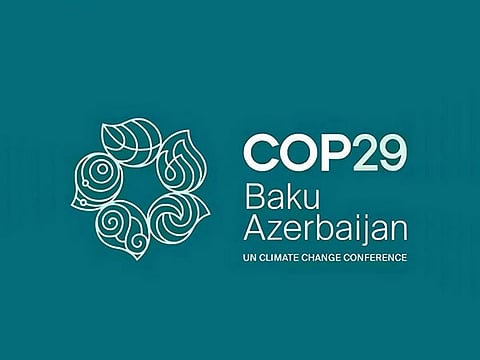

BAKU: At COP29, the G77 bloc of developing nations, alongside China, took a firm stance on the New Collective Quantified Goal (NCQG) for climate finance, calling for an ambitious financial commitment from developed countries to support climate action in the developing world.
Representing roughly 80% of the global population, G77+China has demanded that developed nations provide at least $1.3 trillion annually to aid mitigation, adaptation, and address loss and damage caused by climate change, according to observers.
The G77 rejected the current framework proposed by the ad hoc work programme’s co-chairs, arguing it lacks a sufficient foundation for effective negotiations.
Instead, they called on the newly appointed co-chairs of the NCQG contact group to prepare a fresh, equitable text for consideration at the next session.
The group insisted that any framework should prioritise the needs of developing countries and uphold the principles of equity and “Common But Differentiated Responsibilities and Respective Capabilities” (CBDR-RC), as outlined in both the UN Framework Convention on Climate Change (UNFCCC) and the Paris Agreement.
The G77+China bloc also emphasised that the NCQG should be an exclusive public finance goal for developing countries, rather than a global investment target.
They argued that climate finance should be “new and additional, predictable, adequate, and grant-based,” with concessional terms that avoid increasing the debt burdens of developing nations. They stressed the importance of non-debt-inducing financing to expand fiscal capacity in vulnerable economies and urged that access to finance should remain free from conditionalities that might infringe upon national sovereignty.
A key issue for G77 and civil society organisations is the quality of finance. They are pushing for the exclusion of non-concessional loans and export credits from being counted as climate finance.
Rachel Cleetus, Policy Director at the Union of Concerned Scientists, remarked, “There's no doubt that the lack of federal action on climate change is a big problem, and it's going to hobble US climate action, which is devastating at a time when people in the US and around the world are suffering from extreme fossil fuel climate disasters. But here at COP29, the Biden administration is still a government, and we expect them here to show leadership, take responsibility, and push for ambitious outcomes in the negotiations over the next two weeks. Countries should not hide behind the US election outcome and fail to do the right thing, because everybody knows what's needed right now to secure our climate goals."
Additionally, the Least Developed Countries (LDCs) group and the Alliance of Small Island States (AOSIS) put forward their own specific requests. The LDCs are seeking a minimum of $230 billion annually, while AOSIS has asked for $39 billion in grant-equivalent terms.
Both groups underscored the urgent need for scaled-up adaptation finance and loss and damage support, especially in light of the worsening climate impacts within their regions.